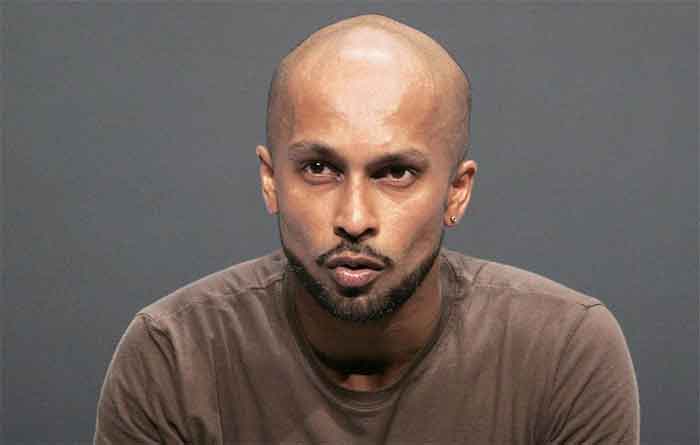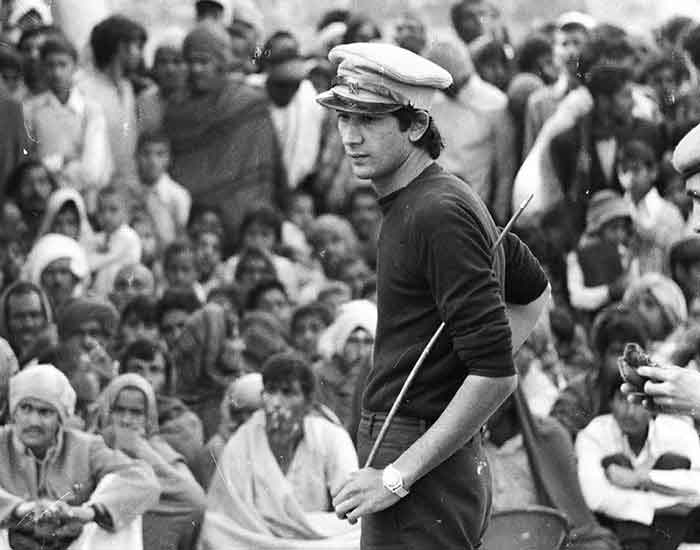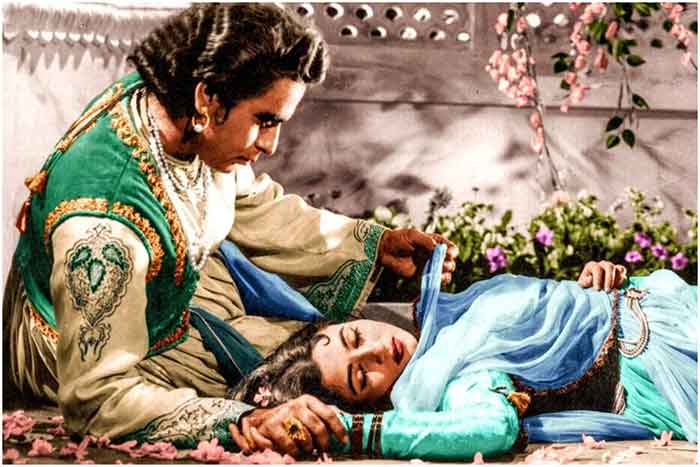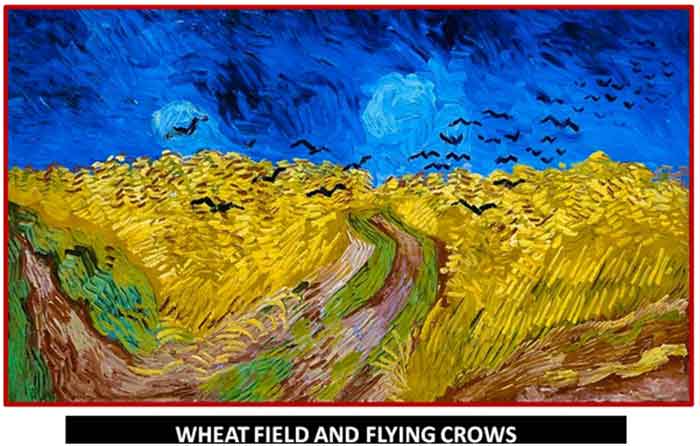
Akram Khan is an internationally renowned dancer who performed at the opening ceremony of London Olympics. Listening to him at G5 A theatre last evening one realised he is such a good thinker. This is probably because he has imbibed multiple traditions, influences, he is trained rigorously in Kathak and Bharata Natyam and is now mainly a modern dance performer, there is the Sufi influence, he is born and brought up in London of Bangladeshi immigrants and he has a deep sense of empathy. As a boy he experienced racism during the days of the British Nationalist party. All this has given him a wide perspective.
He was also in Peter Brook’s famous theatre presentation Mahabharata and toured different parts of the world with the troupe since the age of 13. His reference to Brook’s famous book Empty Space appealed to me more as I cherish that book for its insights into theatre.
As Anuradha Parikh, artistic director of G 5 A and architect, said in interaction with him, she saw Akram Khan 20 years ago at the NCPA innovatively using space.
Akram Khan said Indian classical music was also great in terms of its use of space, it could give us such a wonderful experience using little space.
He said he found the Guru Shishya Parampara suffocating but says we must admit we stand on the shoulders of these distinguished people, we owe so much to them. He still draws heavily on the classical tradition. He gave so many insights into so many issues. The Arts council in London stopped funding for classical Indian dances saying these were not contemporary. One should not make such a distinction in time, what is traditional and what is contemporary.
He owes a lot to his mother who told him so many stories in childhood, many from a feminist perspective, for example looking at life from Eve’s rather than Adam’s perspective, and she taught him the importance of questioning things.
He also always falls back on the Mahabharata for inspiration, it is so much about people, their problems.
He also stressed the importance of empathy, of understanding the other, of looking at grey areas, not black and white,of learning from failure, not afraid to make mistakes.
The conversation followed the screening of a short film Insirgents directed by Aditya Prakash, a Carnatic vocalist born and brought up in Los Angeles with choreography by Akram Khan. It is a strong film without words, through dance it shows how hate is spread, at the end after much killing in violence, a lone boy unfolds a cloth, takes out an axe and it appears he also has turned into a hater. Is this the legacy we want to leave, the film asks.
Aditya Prakash said the film was his reaction to the hate in which well educated people indulged in the attack on Capitol in the U.S. after the defeat of Trump.
Akram said theatre was very important because it provided live communication between the performers and the audience. Modern gadgets were interrupting human interaction. He referred to his children being absorbed in their mobile phones while the family was eating or discussing things. He mentioned this in a lighthearted way but said in practice it was really disturbing.
He also said he did not perform to please the white audience, one has to be true to oneself, have strong convictions about what one is doing.
He also made a laudatory reference to Kathak dancer Aditi Mangaldas who was in the audience, to Chandralekha, Malavika Surukkai and others.
Anuradha Parikh , who conducted the interview, is the Founder and Artistic Director at G5A. An architect and filmmaker, she envisioned and established G5A in 2015, as a multi-functional, multidisciplinary, cultural center and community hub, for the city.Mumbai has been an integral part of her creative journey, as her work continues to be foregrounded by the city and community.As an architect, her practice consists of an eclectic mix of projects, both commercial, industrial, and residential.As a filmmaker, she has been the producer and production designer for the path-breaking, cult, indie films English, August, (1993) and Split Wide Open, (1998) while creating a visual narrative to reckon with, as the production designer for Zoya Akhtar.
Khan was born in Lambeth, London, England, into a family from Dhaka, Bangladesh. He began dancing and trained in the classical South Asian dance form of Kathak at the age of seven. He studied with Pratap Pawar, later becoming his disciple. He began his stage career in the Adventures of Mowgli tour 1984–1985 produced by the Academy of Indian Dance, now Akademi South Asian Dance. At the age of 13, he was cast in Peter Brook’s Shakespeare Company production of Mahabharata, touring the world between 1987 and 1989 and appearing in the televised version of the play broadcast in 1988. Following later studies in Contemporary Dance at De Montfort University[3] and Performing Arts at the Northern School of Contemporary Dance and a period working with Anne Teresa De Keersmaeker’s Brussels based X-Group project, he began presenting solo performances of his work in the 1990s.
In August 2000, he launched Akram Khan Company, founded alongside former dancer Farooq Chaudhry His first full-length work Kaash, a collaboration with Anish Kapoor and Nitin Sawhney, was performed at the Edinburgh Festival in 2002. As choreographer-in-residence and later associate artist at the Southbank Centre,[6] he presented a recital with Pandit Birju Maharaj and Sri Pratap Pawar; and A God of Small Tales, a piece for mature women for which he collaborated with writer Hanif Kureishi.
The film screened before the conversation was because of the impact of the incident on January 6, 2021, following the defeat of U.S. President Donald Trump in the 2020 presidential election, a mob of his supporters attacked the United States Capitol Building in Washington, D.C. The mob sought to keep Trump in power by preventing a joint session of Congress from counting the electoral college votes to formalize the victory of President-elect Joe Biden. According to the House select committee investigating the incident, the attack was the culmination of a seven-part plan by Trump to overturn the election Five people died either shortly before, during, or following the event: one was shot by Capitol Police, another died of a drug overdose, and three died of natural causes.[22][30] Many people were injured, including 138 police officers. Four officers who responded to the attack died by suicide within seven months.
Akram is in Mumbai currently in connection with his performances scheduled at the NCPA in the next few days.
Vidyadhar Date is a senior journalist, author of a book on public transport and is a culture critic













































